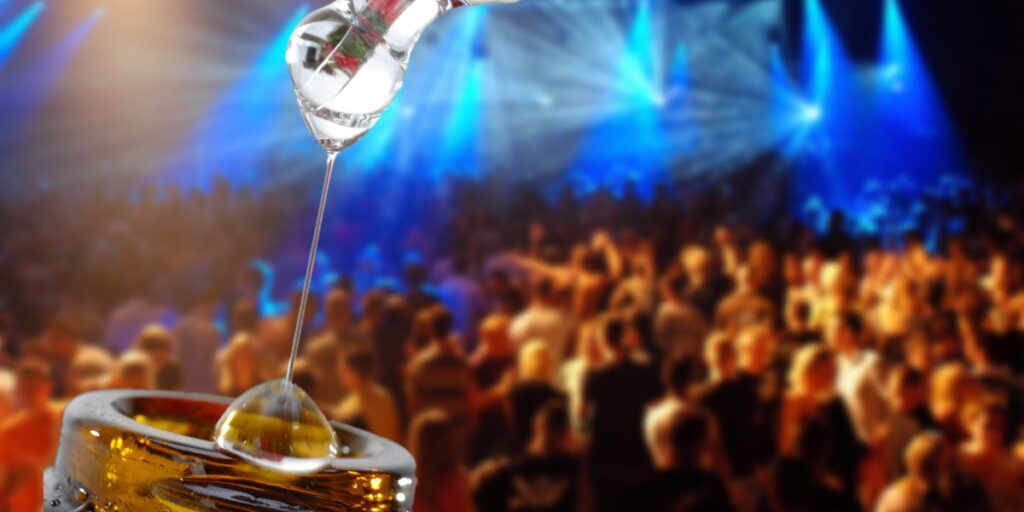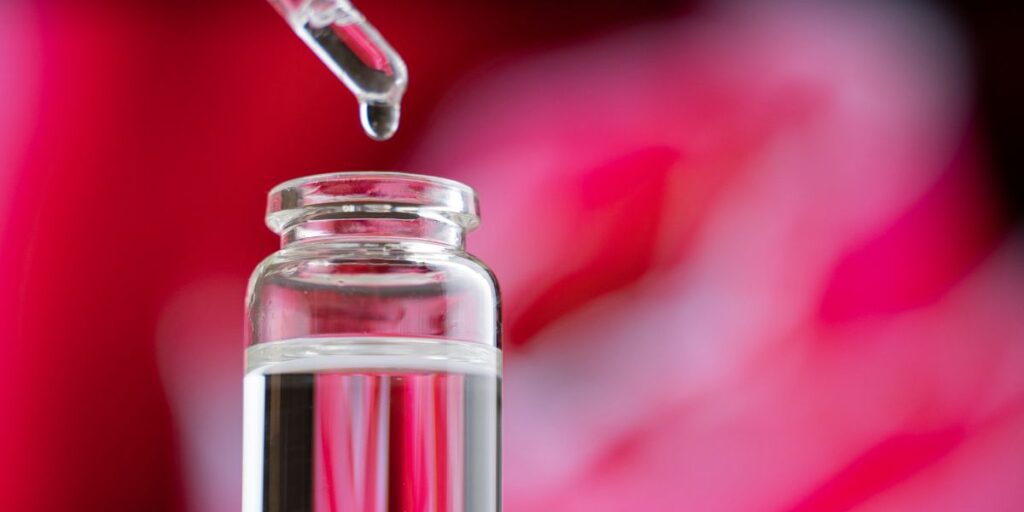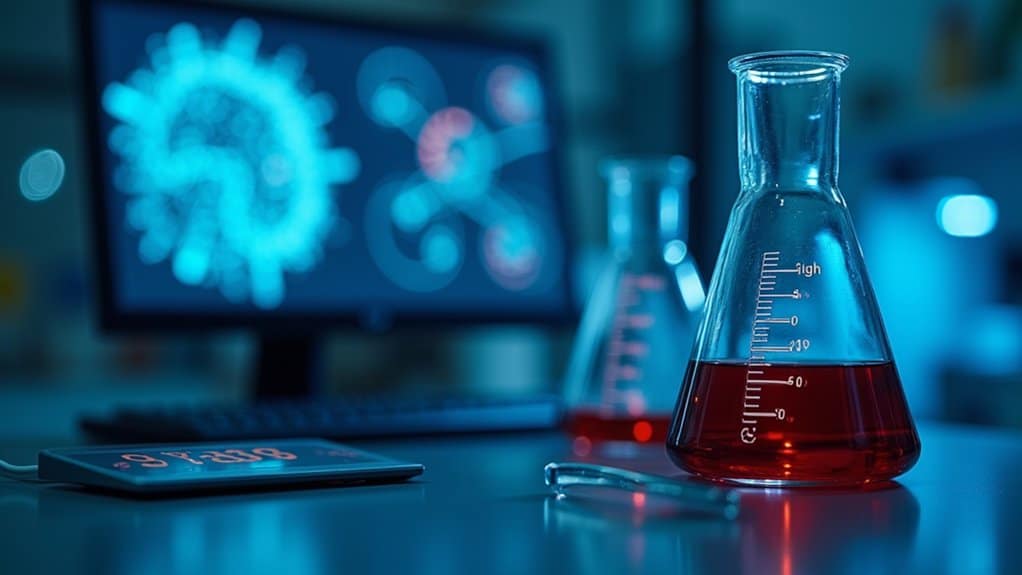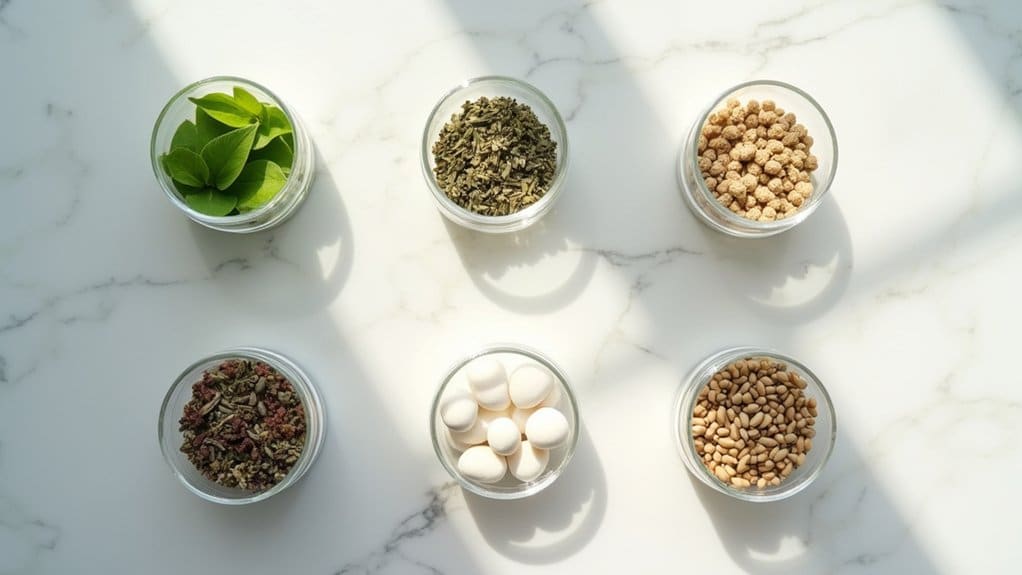Chemically known as gamma-hydroxybutyrate, GHB is most widely known as a date rape drug. Still, it is also popular as a recreational drug that people take for euphoric and relaxing effects in small doses.
Among young adults who use illegal drugs and club drugs, GHB is a favorite because of how little it takes to get the desired effects and because it has fewer after-effects than other substances, such as alcohol.
Gamma-hydroxybutyrate is used medically in one highly controlled medication to treat the sleep disorder narcolepsy.
GHB is a central nervous system depressant that comes in a clear, tasteless liquid or a white powdered form. Most users will drink it straight or mix it into drinks.
GHB addiction can go undetected in people who often use it along with alcohol and other drugs, but it is a severe addiction that is on the rise.
GHB Drug
As a drug, GHB or gamma-hydroxybutyrate is approved by the Food and Drug Administration (FDA) in sodium salt form, sodium oxybate, for use in the prescription medications like Xyrem to treat narcolepsy, a sleep disorder. These medications are highly restricted and require patients in the United States to enroll in a restricted access program.
GHB is a popular drug in the club scene because of its relaxing effects but is infamously known as the date rape drug. Because it is odorless and colorless, making people physically susceptible, and causing memory loss, it’s popular among predators.
The human body naturally produces minimal amounts of GHB that depress the central nervous system and help transmit signals in the brain.
GHB was briefly used as an anesthetic in the 1960s but was pulled because it didn’t effectively kill pain and caused seizures, coma, and death.
In the 1980s, doctors explored GHB to treat the mental illness schizophrenia, but it was unsuccessful.
Later it became popular with bodybuilders who thought it would help produce growth hormones and help build muscle. The FDA banned GHB from being sold over the counter in 1990.
People who synthesize GHB at home sometimes substitute gamma-butyrolactone (GBL) or 1,4 butanediol (BD) because they are easier to get legally.
GBL and BD are found in industrial solvents like paint thinner and ink cartridge cleaner and coating agents on plastic and metal parts. GBL and BD convert to GHB in the body.

What Is GHB?
GHB, gamma-hydroxybutyrate to chemists, is an illegal recreational drug popular in the club and rave scene.
People who intentionally take GHB hope to get a relaxed and euphoric high. Some users have compared the desired effects to alcohol without the hangover the next day.
Because GHB is almost impossible to detect, it became widely used to commit sexual assault on unsuspecting people.
People dosed with GHB often appear extremely drunk and cannot resist assault physically. Victims often have little or no memory of what happens after the drug kicks in.
GHB most commonly comes in a clear, odorless, scentless liquid form and comes in a tablet form or as a loose, white powder.
GHB most commonly comes in a clear, odorless, scentless liquid form, though it can also appear in tablet form or as a loose, white powder. In broader discussions about illicit substances, including terms like shake and bake drug, it’s important to recognize that these drugs can vary widely in appearance and potency, increasing the risk of misuse and overdose.
It depresses the central nervous system and slows down how the brain sends signals to the rest of the body.
When combined with alcohol or other substances, including drugs with sedative effects on the central nervous system, it can produce dangerous side effects resulting in coma and death.
Street Names
GHB is famous as a club drug in the electronic music scene and a date rape drug.
Because of its illegal status, many people use code names and slang terms to ask for it.
Common street names for GHB include:
- Liquid X
- Liquid ecstasy
- Liquid E
- Salty water
- Vita G
- Vitamin G
- Grievous bodily harm (GBH)
- Georgia homeboy
- G
- Gina
- Scoop
- Soap
- Sleep 500
- Fantasy
- Liquid fantasy
- Easy lay
GHB Effects
GHB effects kick in as soon as 15 to 20 minutes after taking a dose and last around three to four hours.
Like all drugs, the effects will vary from person to person based on the mixture of the batch, the amount taken, other substances taken, and the person’s physical makeup and tolerance. When considering how much dmt to smoke, it’s essential to approach the experience with caution and respect for the substance. Many users recommend starting with a lower dose to gauge individual sensitivity and reaction. As with any drug, the setting and mindset can profoundly influence the overall experience.
The effects of GHB include:
- Feelings of euphoria
- Increased sensitivity to physical touch
- Increased sex drive
- Lowered inhibitions
- Drowsiness
- Sedative effects
- Loss of consciousness
- Nausea, vomiting
- Slowed heart rate
- Slowed breathing
- Confusion
- Memory loss
- Hallucinations

Side Effects
Because most people don’t measure the amount of GHB they take or don’t know they’ve been dosed, it is important to know the side effects.
Many people who willingly take GHB are repeat users, which increases the risks of side effects and complications from abuse and drug interactions, even in small doses.
Some of the side effects of GHB include:
- Headache
- Sweating
- Vomiting
- Confusion
- Slurred speech
- Stomach ache
- Diarrhea
- Irritability
- Hallucinations
- Memory loss
- Loss of coordination
- Blacking out
- Low blood pressure
- Muscle spasms
- Anxiety tremors
- Loss of bladder or bowel control
- Seizures
- Slowed breathing
- Slowed heart rate
- Unconsciousness
- Coma
- Death
Because GHB can cause loss of coordination and sudden loss of consciousness, there is also an increase in the risks of bodily harm or being assaulted by others.
The Date Rape Drug
According to the National Institute on Drug Abuse (NIDA), there has been an increase in drug-related sexual assaults or date rapes involving GHB.
GHB is popular among sexual predators because it is easy to slip into someone’s drink and hard for their victim to detect. It renders people physically and mentally pliable, leaving them vulnerable and unable to resist attackers.
Furthermore, because the drug can cause memory loss or prevent memories from being formed, many victims of drug-related sexual assaults don’t fully remember their assaults.
The Drug Enforcement Agency (DEA) stresses that date rape is misleading because most assaults using drugs do not involve a dating situation.
Victims of drug-related sexual assault often don’t report or end up reporting days later after regaining some memory of what happened. Some victims feel guilt about their situation when they were drugged or who they were with when it happened.
GHB is broken down and eliminated from the body quickly, and many emergency care providers are unfamiliar with GBH signs and symptoms. Most emergency rooms don’t have GHB detection tests, so many assaults go undetected.
If you suspect you or someone else has been drugged with GHB, it is vital to seek help as soon as possible. When taken in high doses or mixed with other substances, the drug has an increased risk of overdose, coma, and death.

GHB Withdrawal
Long-term users of GHB can become mentally and physically dependent on the drug and experience withdrawal if they suddenly stop using it.
Interestingly, people have experienced GHB withdrawal after taking a single high dose or small amounts over several hours, just once.
Withdrawal symptoms will be different for each person based on the severity of the addiction and other physical factors.
GHB withdrawal can start between 6 to 72 hours after the last dose was taken and can last up to 15 days.
Symptoms of GHB withdrawal can range from uncomfortable to life-threatening, including:
- Increased heart rate
- Confusion
- Anxiety and panic attacks
- Hallucinations
- Tremors
- Vomiting
- Delirium
- Insomnia
- Paranoia
- Kidney failure
- Cardiac arrest
- Respiratory depression
- Seizures
- Coma
- Death
You should always seek medical advice before you stop taking any substance you use regularly. Some people might require medication-assisted detox to withdraw from GHB safely.
GHB Overdose
The amount of GHB it takes from getting the desired effects to overdosing is minimal, making it extremely easy to overdose.
Experts in health rate it as one of the most dangerous drugs because of how easy and common it is to overdose.
Most people who take GHB don’t measure how much they take or know how potent their mixture is.
What’s even more dangerous is that the National Institutes of Health (NIH) reports more than 80% of GHB users have taken it with other substances, whether knowingly or not, most commonly alcohol, which increases the risk of overdose.
Because GHB is a central nervous system depressant, it can already be too late when an overdose is detected. There are no known cures for a GHB overdose other than ensuring the airways are kept clear if someone loses consciousness and other symptoms are addressed until medical help can arrive.
The symptoms of GHB overdose are:
The symptoms of GHB overdose are often severe and may include breathing difficulties, which can resemble respiratory conditions such as Crack lung in extreme cases.
- Nausea, vomiting
- Choking on vomit
- Incoherence
- Loss of motor function
- Extreme sweating
- Eyes rolling back
- Inability to swallow
- Drooling
- Muscle contractions or twitching
- Unable to be woken up
- Slowed and irregular breathing
- Listlessness, or being completely limp
- Seizures
- Death
If you think you or someone else is overdosing, call 911 immediately.
While you wait for the emergency services to arrive, try to keep the person awake and on their side to reduce the risk of choking on vomit.
GHB Addiction
GHB is highly dangerous, and although it’s uncommon to become addicted after using it once, repeated use can lead to dependence.
If you, a loved one, or someone you know needs GHB addiction treatment, call Northridge Addiction Treatment Center, and we can help answer any questions you may have about taking the first steps towards wellness.
If GHB abuse has turned into an addiction, the most effective way to defeat it is through residential treatment with evidence-based treatment programs.
At NATC, we offer medically supervised detox to ensure a safe, comfortable, and confident transition during the most challenging step of recovery.
Our private residential treatment center allows you to have intensive one-on-one therapy sessions as often as needed throughout your stay, along with dual diagnosis and medication-assisted treatment to address any repressed trauma and heal all aspects of yourself.
Our behavioral therapies and support groups help you understand you are not alone and give you the skills to stay on the path to recovery for the rest of your life.
You don’t have to do this alone. Reach out today to speak to one of our expert admissions specialists who are eager to answer any question or concern you may have.




